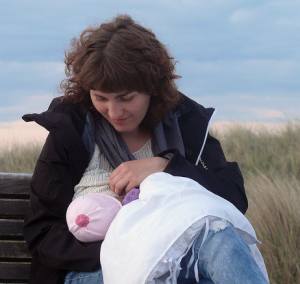
For mothers, breastfeeding lowers chances of being a victim to cancer and circulatory diseases.
Among children, it prevents diarrhoea and pneumonia.
It is a commonly known fact that breast feeding is essential for the wellbeing of a new born, especially in the first six months. A breast fed child is fourteen times less likely to die as opposed to non-breastfed child during this period. The colostrum of a nursing mother enhances the immunity of a child while the milk itself contains nutrient values that prove to be disease resistant. It has also been shown that this process lowers the risk of developing Alzheimer’s in mothers and strengthens the developing lungs of the child, aiding in reducing the threat of asthma. In addition, it prevents diarrhoea and pneumonia among children.
In the recent past, scientists have been able to discover a direct relationship between breastfeeding and breast cancer. Breastfeeding is not only beneficial for the child but also the mother as it greatly reduces the risk of developing ovarian cancer and a type of breast cancer, especially among young women, who have poor prognosis. In the opinion of a study carried out at Columbia University’s Mailman School of Public Health, breastfeeding has been found to minimise the danger of oestrogen receptor-negative and progesterone receptor-negative breast cancer.
Although breast cancer rates have been in the past relatively lower in India, this no longer holds true. Indian women, particularly urban women, are greatly affected owing to their lifestyles, late motherhood trends and succumbing to social and professional stress to avoid breastfeeding.
Breast cancer accounts for 25 per cent-32 per cent of all cancer in females and largely affects women below fifty years of age, that is, 48 per cent of women between ages 20 to 50 years. It is shown that 89 out of 100 females are likely to survive for at least 5 years in the West. This cannot be said for India. There is a dire need to spread awareness about the importance of breastfeeding and hold campaigns for the same so that the message reaches out to larger masses.
Experts have concluded that, though extensive reasons for this direct relationship between breastfeeding and breast cancer is not yet thoroughly researched, it is suggested that the high hormone levels required for lactation appeared to affect cell growth so as to protect the breast against changes that would otherwise make the breasts vulnerable to breast cancer. Just as soon as breastfeeding comes to a halt, the body gets rid of damaged cells that are potentially cancerous. In addition, the fact that women cease to ovulate during the time of producing milk also contributes in protection against the possibility of breast or ovarian cancer.
According to cancer statistics study conducted by World Cancer Research Fund, women who breastfeed for at least a year, not necessarily at a stretch, are five percent less likely to develop breast cancer. The longer a women breast feeds, lower her chances of being a victim to cancer and circulatory diseases.
A recent study by AIIMS (All India Institute of Medical Sciences) and Indian Council of Medical Research (ICMR) has unveiled that urban working women yield to higher abortions, late reproduction, and shorter periods of breastfeeding and larger consumption of oral contraceptive pills and thus have higher vulnerability to breast and ovarian cancer. This risk among urban Indian women with a history of using contraceptive pills is increased by a shocking figure of 9.5 times higher.
Some women who are treated of breast cancer and are fertile need not worry about becoming a mother. Studies have revealed that hormones produced during pregnancy and breastfeeding do not initiate or revive breast cancer. Neither will the milk carry any cancer cells.
Photograph: Chris Alban Hansen/Creative Commons
Dr Shacchee Baweja (DCH, IBCLC, IYCF Specialist) is Lactation consultant at BLK Superspecialty Hospital











 © 2025
© 2025